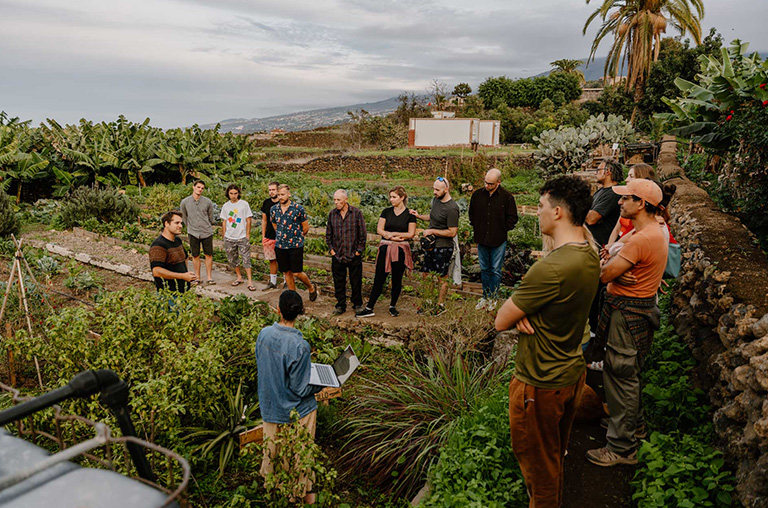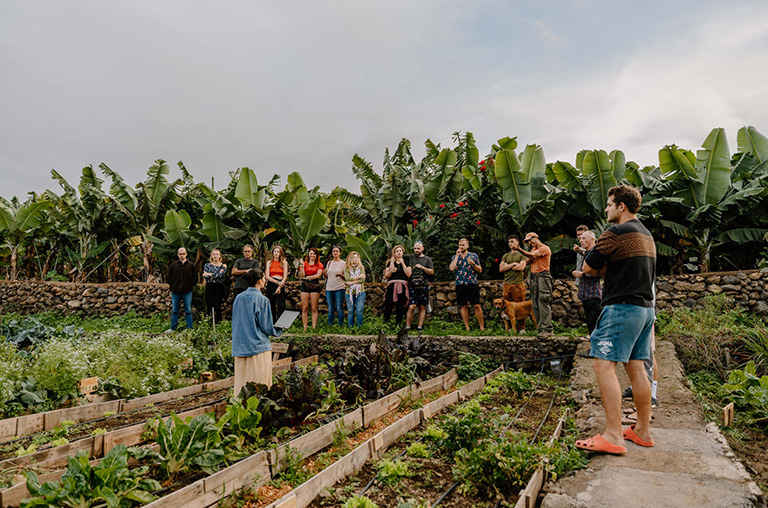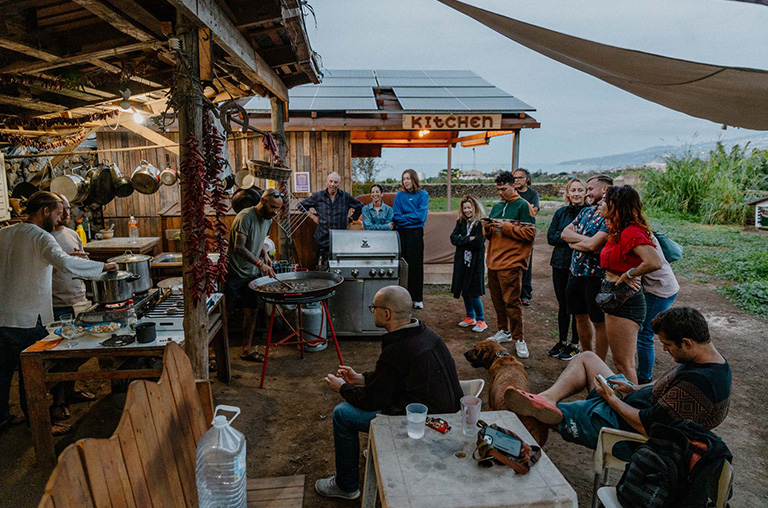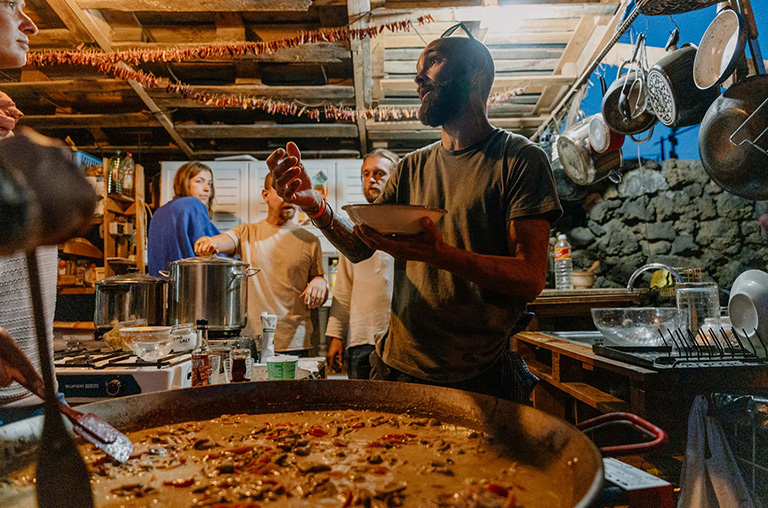Plants were the protagonists this week. David and Delphihe gave us a plant workshop in which they showed us their benefits and properties. They started with lavender, a rustic wild shrub that flowers in summer. It is relaxing, hypotensive, digestive and healing. It helps reduce stress, relieves migraines, improves heavy digestion and cleanses the skin. And of course it provides its distinctive aroma.

Next was rosemary, another type of aromatic shrub, which requires a lot of sun. Apart from its pleasant taste, it is also stimulating, anti-inflammatory, bactericidal, fungicidal, antiseptic, healing and digestive.
They then talked about basil, the main ingredient in one of the most famous pasta sauces, pesto. Another way to consume it is as tea and oil. It stimulates the immune system and prevents premature ageing, facilitates digestion, stimulates appetite, prevents and stops vomiting, relieves heartburn, clears mucus from the respiratory system, calms asthma and relieves pain.
Then it was the turn of citronella, caña santa or caña limón, also known as lemongrass, with leaves in the shape of very long ribbons and a marked lemon scent.

It is very popular in Asian and African cuisines. It is also used as a repellent for mosquitoes and other insects. It is antiseptic, antibacterial, fungicidal, sedative, analgesic and antidepressant.
They finished with coriander, a very aromatic herb, present in the gastronomy of Asian, African and Latin American countries. It has digestive, stimulant, bactericidal and antispasmodic properties, combats bad breath and can be used as a natural body deodorant. It helps reduce cholesterol levels and has bactericidal and anti-inflammatory effects.

The day ended with a green curry workshop led by Cristiano, who shared his secrets and tips for preparing this dish. Some participants collected citronella and coriander from the garden, which underlined the importance of zero km consumption.

